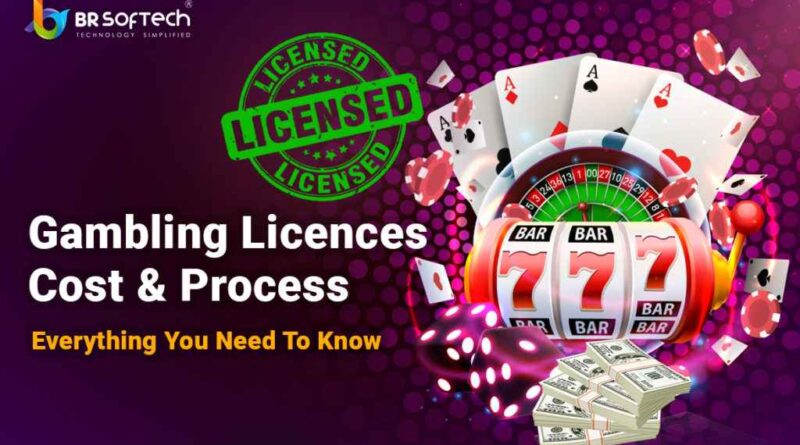Demystifying Licenses: Understanding the Foundation of Modern
Licenses are an integral part of our modern world, governing a vast array of activities and products. From the software that powers our computers to the music we stream and the art we admire, https://licensegentlemen.com/anjouan-license/ play a crucial role in defining how we interact with intellectual property and technology. In this article, we’ll explore what licenses are, why they matter, and the various types of licenses that govern our digital and physical lives.
What is a License?
At its core, a license is a legal agreement between two parties: the licensor and the licensee. The licensor is the owner or holder of a certain right, be it intellectual property, a piece of software, or any other asset, while the licensee is the individual or entity granted permission to use that asset. Licenses serve as the legal framework that defines the terms and conditions under which the https://licensegentlemen.com/anjouan-license/ can use the asset, making it clear what is and is not allowed.
Licenses are not limited to any single type of asset. They cover a broad spectrum of things, including:
- Software: Software licenses dictate how you can use a particular piece of software. Some software is open source and allows for virtually unrestricted use and modification, while proprietary software licenses often come with strict limitations.
- Creative Works: Artists, authors, and content creators use licenses to specify how others can use their work. The Creative Commons licenses, for example, allow artists to grant varying levels of permissions for their creative content.
- Intellectual Property: Patents, trademarks, and copyrights are all examples of intellectual property licenses. They grant exclusive rights to the holder for a specific period, limiting others from using, making, or selling the protected creation.
- Real Property: Property owners can grant https://licensegentlemen.com/anjouan-license/ to others to access or use their land or facilities for specific purposes.
- Businesses: Companies may license their trademarks and branding to franchisees, for example, giving them the right to operate under the company’s name and using its established business model.
- Media and Entertainment: Music, film, and TV shows are often governed by licensing agreements, determining how these creative products can be distributed, broadcast, or performed.
Why Licenses Matter
Licenses play a critical role in modern society for several reasons:
- Protection of Rights: Licenses protect the rights of creators, innovators, and owners of various forms of property. They specify how their work can be used and under what conditions, preventing unauthorized use or reproduction.
- Legal Clarity: Licenses provide legal clarity by outlining the rights and obligations of both parties. This clarity reduces disputes and ensures everyone involved understands the terms of the agreement.
- Promotion of Innovation and Creativity: Some https://licensegentlemen.com/anjouan-license/, like open-source software licenses or Creative Commons licenses, encourage the sharing of creative works, fostering innovation and collaboration.
- Revenue Generation: Many businesses use licensing to generate revenue. Licensing their brand, technology, or intellectual property to other entities can be a significant source of income.
Types of Licenses
Licenses come in various forms, each tailored to specific needs and goals. Here are some common types:
- Open Source Licenses: These licenses, like the GNU General Public License (GPL), allow software to be freely used, modified, and distributed. They often come with the condition that derivative works must also be open source.
- Proprietary Licenses: Proprietary software and content are typically subject to licenses that restrict how they can be use, modify, and distributed. These licenses protect the owner’s intellectual property and often require payment for usage.
- Creative Commons Licenses: These licenses allow creators to define the terms under which others can use their work, whether it’s for commercial purposes or only for non-commercial use, with or without modification, etc.
- Patents and Trademarks: Patents grant inventors exclusive rights to their inventions for a specified period, while trademarks protect brand identity and logos.
- End-User License Agreements (EULAs): EULAs accompany most software products and outline. The terms of use for consumers, including any restrictions and disclaimers.
- Franchise Licenses: Businesses often use franchise licenses to permit others to operate under. Their brand, usually following a predefined business model.
Challenges and Controversies
While licenses are essential in protecting intellectual property and ensuring clarity, they are not without their challenges and controversies. Some issues include:
- Complexity: Legal jargon and the intricacies of licensing agreements can make them challenging to understand, leading to disputes and legal battles.
- Overly Restrictive Licenses: Some licenses may be overly restrictive, limiting the potential for innovation and collaboration. Striking a balance between protecting rights and fostering progress can be difficult.
- Enforcement: Enforcing licenses can be a complex and costly process. Making it challenging for small creators or businesses to protect their rights effectively.
- License Compatibility: In the case of open-source software. Different licenses may have conflicting terms, making it difficult to combine code from different sources.
Conclusion
Licenses are the backbone of the modern legal framework governing intellectual property, technology, and creative works. They provide the legal foundation for protecting the rights of creators and businesses. While fostering innovation and collaboration in various domains. Understanding the different types of https://licensegentlemen.com/anjouan-license/. Their implications is essential in today’s world, where the digital and physical realms are increasingly intertwine. Whether you’re a content creator, a business owner, or a consumer, being aware of licenses. Their terms is crucial for navigating the intricate landscape of intellectual property and technology in the 21st century.

